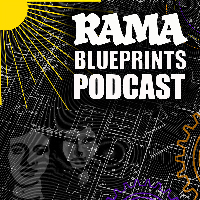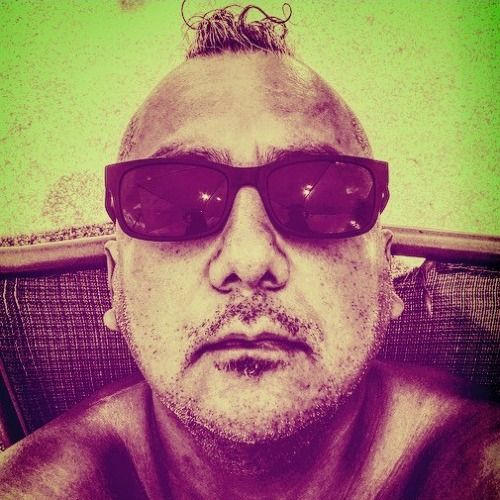Episode 7
eXtra Herstory: Fatima Ramirez & Paseo Artistico
Fatima Ramirez, Executive Director of Accíon Latina and publisher of El Tecolote in San Francisco's Mission District talks about the role their Paseo Artisico program plays within building community. Accíon Latina and El Tecolote have been promoting cultural arts, community media, and civic engagement as a way of building healthy and empowered Latino communities.
Please consider donating to RAMA Blueprints at the CARECEN SF. Please subscribe above and share with 2 people. This episode was produced and edited by Darren J. de Leon and Socorro Gamboa for the 5 Sisters Audio Garden.
Transcript
Good morning.
Socorro:We're in San Francisco, California.
Socorro:We are in the Mission District on a gloomy day, but a beautiful day
Socorro:to have Fatima Ramirez with us, the executive director of Accíon Latina and
Socorro:publisher of El Tecolote, a newspaper that has been an activist voice for the
Socorro:community getting ready to celebrate 53 years of community activism.
Fatima:Thank you.
Fatima:Thank you so much for having me back today onto the show.
Fatima:Some reflections I guess that have come just from that conversation was just
Fatima:really the beauty of the tres generacíones coming together as I shared that day, and
Fatima:I've just kept thinking about it when we were at the live podcast is really this
Fatima:idea of the trenza and really having three different strands, three different
Fatima:voices and generations represented.
Fatima:And really the beauty and the power that comes from that especially when there
Fatima:are moments of sometimes of crisis and sometimes of violence as well which,
Fatima:you know, unfortunately has been the case here in the Mission District.
Fatima:But I think that coming back to that sense of wisdom that comes from having
Fatima:three generations come together really helps us to remember that we have
Fatima:survived other violent periods in the Mission District and I think as
Fatima:a Latinx community in general, when we fall down, we always get back up.
Fatima:So that's something that I've kept thinking about.
Socorro:Wow.
Socorro:that part of community resilience seeing a community come together
Socorro:and react in a proactive way.
Socorro:I'm proud to say that at least that's one of the things that I did take with me.
Socorro:You know, one of the questions that came to us was, how do you
Socorro:use art as an act of resilience?
Fatima:Yeah, thinking back about Accíon Latina and our mission and the work that
Fatima:we do, I see everything, that we do in terms of community media, culture, arts
Fatima:and civic engagement as really different ways of approaching storytelling.
Fatima:And we do that both through journalism as well as through the arts.
Fatima:And specifically some of the ways in which we've blended that is through our
Fatima:Paseo Artistico program, which began in 2016, and it's something that we curate
Fatima:and organize in community with about a dozen other cultural organizations in
Fatima:the Mission District along 24th Street.
Fatima:Together we determine what the theme is as well as which
Fatima:artists are going to participate.
Fatima:And it's been an amazing vehicle for us to be able to respond
Fatima:particularly in times when community is facing some kind of difficulty.
Fatima:I'm always amazed at the ways in which artists themselves can
Fatima:be first responders to crisis.
Fatima:And to do that in such an innovative way, that also leans on our traditions
Fatima:and reminds us ultimately of who we are so that we're able to hold onto that
Fatima:hope that things are gonna be able to get better, that look at the beauty that
Fatima:we're able to put out into the world.
Fatima:We don't have to get so disheartened by the gloom around us.
Socorro:Thank you for that.
Socorro:Staying on the topic of Paseo Artistico, tell us a little bit about how it
Socorro:was born and then also the role that the community at large plays in the
Socorro:design of it and the development of it.
Fatima:So, my understanding of it when it was first created in 2016,
Fatima:it was a collaboration between Accíon Latina as well as Calle
Fatima:Viente Cuatro to be able to bring our organizations together and be able to
Fatima:curate programming together as well.
Fatima:So we're really fortunate that we received a two year seed grant essentially
Fatima:from the California Arts Council.
Fatima:That's what allowed us to be able to get it started.
Fatima:And since then, Accíon Latina has moved on to become the main producer of the Paseo
Fatima:and really continuing that tradition always in what do we wanna do together?
Fatima:Because individually, each one of our cultural arts organizations has a lot
Fatima:of robust programming, but I think there's a lot of power of being able
Fatima:to actually come together as well and have a united front, a united event
Fatima:that we present back to the community.
Fatima:And during the pandemic many of our partners actually shared that
Fatima:it was Paseo that felt like a glue for them to be able to continue to
Fatima:have a presence in the corridor.
Fatima:Even if our doors had to be closed, even if we were in quarantine, there
Fatima:was still at least a virtual or a hybrid way of interacting with our
Fatima:audiences, and that kept us all together.
Socorro:I wanna explore a little something with you.
Socorro:You guys are on on 24th Street
Fatima:24th Street and Alabama.
Socorro:Alabama.
Socorro:So in that general community, let's just say you have Las Familia Ramirez down
Socorro:the street and La Señora Fulana de Tal.
Socorro:How does Paseo Artestico impact that person that, that community member that
Socorro:doesn't engage in the arts or what does it bring to them and what, what is the
Socorro:overall goal in impacting community?
Fatima:Yeah, that's a great question.
Fatima:I often think about that when, especially we have outdoor
Fatima:programming in front of the venues.
Fatima:You know, somebody's there to do a mandado maybe they're just there to
Fatima:buy tamales or pan dulce, and all of a sudden theater unfolds on the street and
Fatima:now you're a part of the performance.
Fatima:And I think that's beautiful.
Fatima:I think it's amazing that especially for community members that perhaps
Fatima:don't attend those events frequently for whatever reason, maybe it's access, maybe
Fatima:it's money, time, whatever it might be.
Fatima:For the arts to come to them rather than waiting for them to come to
Fatima:the arts, I think is powerful.
Fatima:And we already have the most beautiful backdrop with all of the murals, with
Fatima:all of the iconography and the colors that we have in our neighborhood.
Fatima:So it's the perfect set for us to just unfold into poetry theater out on the
Fatima:streets and have people be a part of that.
Socorro:And in thinking of terms around the principles of RAP and
Socorro:self-determination, how does Paseo Artistico execute self-determination,
Socorro:community empowerment?
Fatima:Hmm.
Fatima:Yeah, I think one of the things that comes to mind is that through our different
Fatima:partnerships, particularly one with the Community Music Center, for example,
Fatima:one of the things that they've reported back is that when they have their
Fatima:students and their, like young musicians program participate in Paseo Artistico,
Fatima:they notice a light bulb goes off.
Fatima:They go from, I'm over here learning how to play this instrument, maybe as a hobby
Fatima:or for something that interests me to now becoming an artist, because they're
Fatima:now performing in front of an audience.
Fatima:They're getting feedback and they're realizing, oh, like
Fatima:maybe I wanna keep doing this.
Fatima:Even if it is as a side hobby, or maybe it sparks a career for them.
Fatima:There's a switch that happens when they're able to perform outdoors
Fatima:in front of an audience that really leads them to that transformation
Fatima:of I'm an artist in the community.
Socorro:Explore with us a little bit about how Accíon Latina
Socorro:engages with youth programming
Fatima:Yeah.
Fatima:I know there's certainly been a more direct involvement with
Fatima:youth throughout our history.
Fatima:We've had the Fuerza Joven program, and I think through El Tecolote, we continue
Fatima:to serve as a training ground for the next generation of Latino journalists.
Fatima:Through our artistic programming in our gallery, we always try to emphasize
Fatima:having space and creating space for emerging and established Latinx artists.
Fatima:And through Paseo as I just mentioned, that's really an opportunity where
Fatima:our partners can also have Youth be present and participate, take
Fatima:ownership of their neighborhood, and showcase their artistic talent.
Fatima:In other occasions, we've also had specific journalism programs where
Fatima:we work with migrant youth to tell their own stories of migration,
Fatima:challenging the mainstream narratives, particularly when, as it happens,
Fatima:immigrants will be scapegoated for issues that are happening in the country.
Fatima:This specific journalism program that we had called Migrantes meant to be
Fatima:migrantes and a personal testimonial of what their migration journey actually was.
Fatima:That's another opportunity for youth to just reclaim their narrative and
Fatima:to also maybe turn on a light bulb and think, oh, maybe journalism
Fatima:as a career that I wanna pursue.
Socorro:What's coming up for Accíon Latina and what are the
Socorro:things that are coming forward in regards to actions or activities?
Fatima:Well, one of the things that you mentioned is we're very proud
Fatima:that El Tecolote has now been serving our community for over 50 years.
Fatima:We're celebrating 53 years this August.
Fatima:And we're gonna be hosting a gala at St.
Fatima:Mary's Cathedral on August 26th.
Fatima:We're gonna be having a lot of amazing performances that day with John Santos, La
Fatima:Familia Peña Govea, Francisco Herrera, and it will be MC'd by two members of Culture
Fatima:Clash, Rick Salinas and Richard Montoya.
Fatima:So we're very excited, that.
Fatima:even though we didn't get to celebrate the big 50 all in community
Fatima:again because of the pandemic, we finally get to have the big party.
Fatima:And we're hoping everybody can join us to again celebrate how we
Fatima:can be resilient as a community.
Socorro:Thank you so much, Fatima.
Socorro:Thank you for your time.
Socorro:Thank you for your work and continued fuerza to you.
Socorro:And muchos bendiciones, gracias.
Socorro:We've been talking with Fatima Ramirez, executive director of Accíon Latina.
Socorro:Thank you for listening.
Socorro:Please consider donating to RAMA Blueprints at the CARECENSF.org
Socorro:website or the link in the description.
Socorro:Please subscribe to our podcast and share it with two people.
Socorro:This episode was produced and edited by Darren J.
Socorro:De Leon and Socorro Gamboa for the 5 Sisters Audio Garden.
Socorro:Thank you for listening, and remember to listen is to heal.



